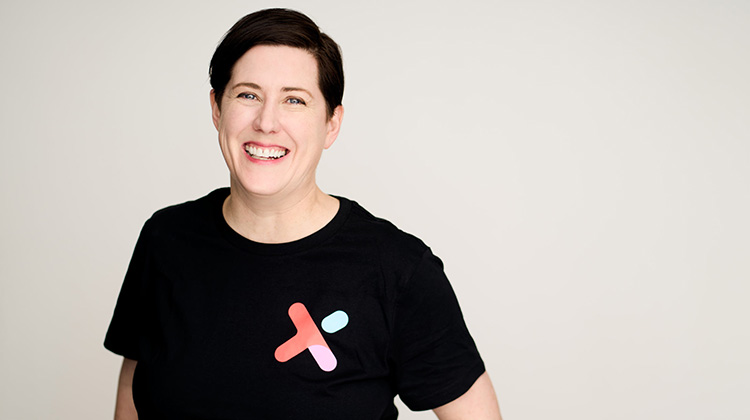Harnessing Young People’s ‘Superpowers’ for Their Future

As one of the few dedicated Chief Learning Officers in the Australian ed tech industry, I celebrate those who help young people thrive as they emerge from Year 12. It is one of the most influential moments in a young person’s life, as they attempt to bring together the collective experience of high school, and start to find their way in the world of work, further learning, and life.
At HEX, we are leveraging emerging ed tech and workplace technologies to help more young people get ready for a future that will call on deeper, broader resilience. There is no one-size-fits-all solution for young people, but we’re finding there’s great power in giving rising entrepreneurial talents better tools to work with, as early as we can.
It’s timely to spotlight this issue with a new Australian National Microcredentials Framework just released. This is a welcome tool for simplifying how education providers should design and communicate about credentials that prove relevant to both the worlds of education and work.
I’m proud to support rising talent aged 17 and over to power their entrepreneurial mindsets, skill sets and toolsets. These are the superpowers that they’ll need to not only cope with, but to creatively respond to an incredibly complex, multifaceted skills landscape. With a predicted 97 million new jobs to be created because of tech-driven change leading up to 2025, and demand for 1 million tech jobs in Australia alone, there’s much more for education innovators like us to do – and you have a role to play too.
What can educators do now, to help cultivate skills future employers will want?
1 Cultivate powerful open questioning skills
Create opportunities for your young cohort to practice asking “what if?” questions - exploratory activities that stretch their brains across unanticipated, unlikely, or even downright impossible scenarios. “What if?” questions allow us to open up unexpected future plans - versus taking a “What is?” view of the world, where you plan to fit in with what exists already.
This could be the difference between someone thinking “I see a lot of lawyers doing well, maybe I should also be a lawyer”, to thinking “I know I’m great at articulating cases for change, what if I explore careers that help me create an impact using that skill set?” By asking “what if I explored this differently”, that talent may well rise into a quite different field or specialism than they might have thought.
2 Foster exploration of “alternative credentials”
Curiosity by itself is important, but curiosity with knowledge is powerful. What used to be called “alternative credentials” are well on their way to becoming mainstream. These are short, quick to earn, collectible evidence of learning or achievements. Often obtained from education providers working alongside the mainstream education system whose offerings complement, augment or shave time and cost off the big-ticket qualifications of diplomas and degrees. In the new framework, we can now recognise as little as 1 hour of learning effort, which means we can get quite granular about the skills we recognise.
If you encounter a young person who isn’t finding inspiration in the formal education system, perhaps encourage them to explore credentials that relate to an industry they’re curious about.
3 Speak about the importance of microcredentials to the people who make the decisions
Many organisations are dropping the requirement for a degree, and/or recognising equivalent skills and experience in more nuanced ways. Companies like Atlassian, Google and Salesforce have been investing in creating their own in-house credentials with serious oomph, to help close the gap between uni learning and workplace-readiness.
Unfortunately, the microcredentials are not yet accepted by the sponsors and supporters of young people on their way up – who strongly prefer a degree that on paper promises to lead to a (linear) career path. Credentials can help build flexibility, range and industry relevance into a young person’s toolkit, much earlier in their journey.
There’s a fast-growing community of creative innovators who are working hard to design better ways to recognise and reward young people’s talent. It’s now time to think about what you can do to foster engagement and exploration of futuristic superpowers with young people.
Dr Katy McDevitt is Chief Learning Officer at HEX (startwithhex.com), an award-winning edtech company delivering internationally recognised innovation and entrepreneurship programs to university students and the next generation of talent.
Katy is a highly credentialled executive leader of learning who loves to work with innovative education providers and universities, drawing on 20+ years of global professional experience in the UK and Australia, including senior leadership roles directing microcredentialling, digital learning and adult/professional education for organisations like Pearson Australia, Deakin University, and Adelaide University. Katy is qualified in Learning Sciences and Technology (GDip, Sydney, 2018) building on her earlier academic training in English (DPhil, Oxford, 2002). She has also trained widely over the past decade to build out broad and deep expertise across Leadership Development, Organisational Learning and Strategy, Coaching and Design.